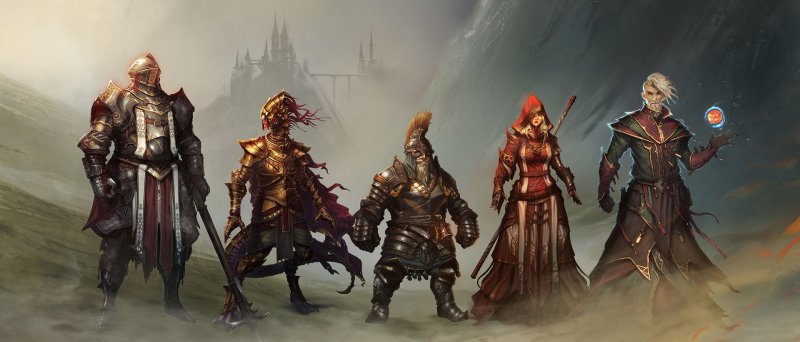Divinity: Original Sin is one of those stories born thanks to Kickstarter which is nice to tell. Larian Studios was in very poor waters on an economic level and as a last resort he chose the crowdfunding way to finance a hardcore prequel from the Divinity series. A bit like what happened with Obsidian and his Pillars of Eternity, one of the best hardcore role-playing games of the last few years came out, a true evolution of a genre that big publishers have long since abandoned.
Also came the acclamation of criticism and success in sales, it was natural that Larian followed that experience, returning to Kickstarter with an even more ambitious project:
make a sequel that would improve all the most critical points of the original, signaled by press and players.The result is Divinity: Original Sin II, a title that amazes for more than one reason. But we do not run too much, because there is so much to say.
Divinity: Original Sin II tells of a witch who is voluntarily brought to the island of Fort Joy, where anyone with powers related to the magic energy Source is segregated, whom we will learn more in the course of the game (or who will know almost all those who played the other titles in the series) to perform an unspecified mission. After creating a character, or selecting one of those pre-generated by the developers, we wake up on a ship at the mercy of a storm.
We wear only rags and a collar that inhibits the use of spells based on Source. We are also headed to Fort Joy, but we immediately understand that something is wrong. Exploring the ship we discover that a murder has been committed and we talk to our future companions.
We also come across the witch in a sequence that starts the events that will be explained and developed during the game. Already in this first section, obviously designed to gain confidence with the various mechanics, which we will discuss in the next paragraph,
we are called to make a series of choices in the dialogues and you can test some of the main features of the gameplay, such as the presence of small puzzles to access some areas, or the versatility of the combat system. The beauty, however, has not yet arrived.
EVOLVING
The game system of Divinity: Original Sin II is particularly complex, but gives great satisfaction. The party can not only talk to other characters, collect and leave objects, interact with some elements of the scenario and fight, but also create or enhance objects using recipes (or experimentation), exploit the skills to discover hidden treasures, to break locks , to infiltrate without being seen, to identify magical items, to snatch non-player characters and for much more.
Of course, there are all those systems linked to the growth and enhancement of the characters, with features on which to spend the points gained by leveling up , equipment to be managed, skills to learn by reading books or unlockables going forward in history. The best part, however, is not the quantity of mechanics in itself, but rather their ability to coexist and intertwine in a natural way, without compromising the gameplay.After doing a little ‘practice with the controls, easy to manage using a mouse and keyboard (at least if you have practice with the genre), a bit’ more cumbersome if you decide to use a gamepad (we advise against it,
even if you can return useful to play in split screen with some friends) we understand that it would be difficult to make such a deep title by cutting screenshots or input. The same game diary, which gives general indications on the missions without placing on the map the annoying indicators for amateurs in the breaking,is intended for those who love role-playing games in their oldest meaning, that is, that did not provide aid at every step,
but left the player free to experiment and, why not, to fail. After all, only those who consider you a fool thinks of having to help you to tie your shoes. At most in Original Sin II there is a tutorial made up of pop-up windows in which the basic concepts are explained. Those who explore more deeply are always rewarded and those who study more the control system, trying to understand all the facets, too.

